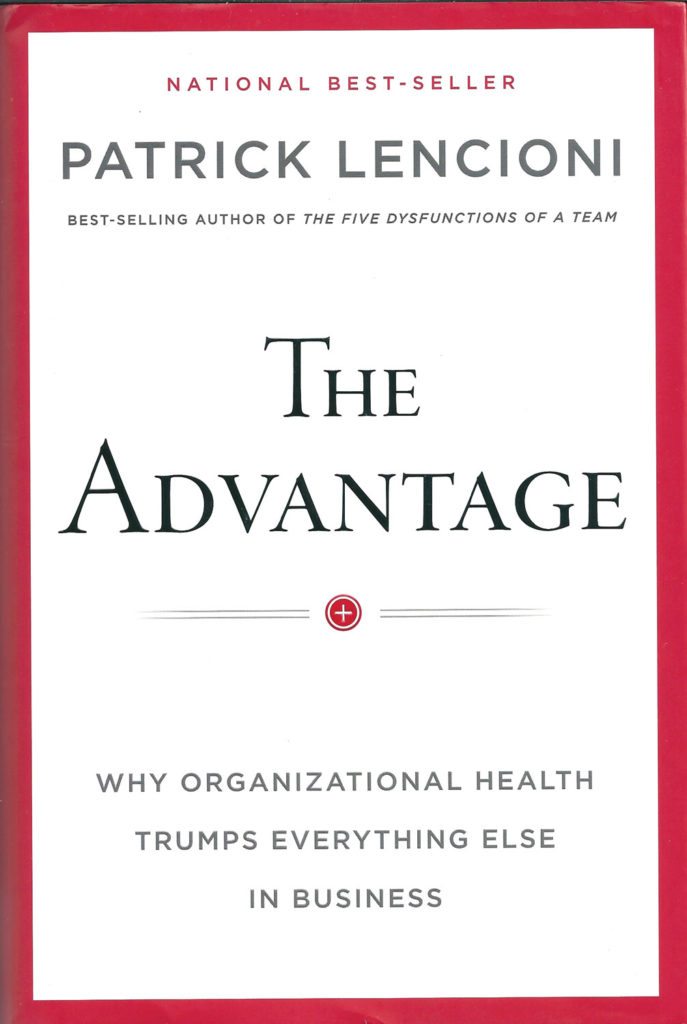Peter Drucker is credited with the phrase “culture eats strategy for breakfast.” This well-known philosophy has become common wisdom in corporate America. Yet despite this wide acceptance, most companies don’t spend enough time or resources establishing a healthy organizational culture.
Why? Cultural health is difficult to grasp. It will never appear on a balance sheet. It’s a science and art that we’re not educated or trained to advance. It’s nearly impossible to objectively measure. Because of these reasons, and because most executives just don’t know what to do, leaders merely pay lip service to the topic. Yet for the last two consecutive years, Gallup research shows a consistently alarming trend—the majority (51%) of employees are “not engaged,” while another 17% are outright “actively disengaged.” Basically, you’re competing with less than half of your human capacity.
Patrick Lencioni, author of The Advantage: Why Organizational Health Trumps Everything Else in Business (Jossey-Bass, 2012), proclaims, “Organizational health (culture) will one day surpass all other disciplines in business as the greatest opportunity for self-improvement and competitive advantage.” Patrick makes a direct compelling argument that your workforce is your greatest asset, and therefore the greatest opportunity for return on your investment. He’s right.
At a macro level, Patrick offers four disciplines:
- Build a cohesive leadership supported by consistent behavior modeled by its leaders.
- Create clarity around purpose, objectives, priorities, and accountability.
- Over-communicate clarity through several mediums, and to all leaders, consistently and continuously.
- Reinforce clarity with metrics and critical operating mechanisms.
The book unpacks these concepts. But the very first prescription for success is trust. I feel the eye rolls coming on, but before you undermine this concept, consider recent evidence. The latest Harvard Business Review issue cites a decade-long global study highlighting that 55% of CEOs reported that “lack of trust” is a threat to their organization’s growth. Also, a February Forbes article reported that 63% of employees do not trust their leaders, leading to disengagement. Do you want to compete with half your team? I don’t.
Nothing can start without trust. At the forefront of a healthy culture is the executive team’s role in modeling trust. Patrick defines trust as leaders “completely being comfortable, being transparent, honest with one another, where they say and genuinely mean things like ‘I screwed up;’ ‘I need help;’ ‘Your idea is better than mine;’ and even ‘I’m sorry.’” At the heart of trust is the leader’s “willingness to abandon their pride and their fear, to sacrifice their egos for the collective good of the team.”
Do you lead this way? If not, before you execute the latest strategy or invest your valuable scarce resources, stop and think about how you can genuinely inspire trust as a starting point. By the way, it’s okay to admit to yourself, “I’m not ready to do this”—just realize that you’re not optimizing your greatest competitive advantage, employee engagement, and the health of your culture.





